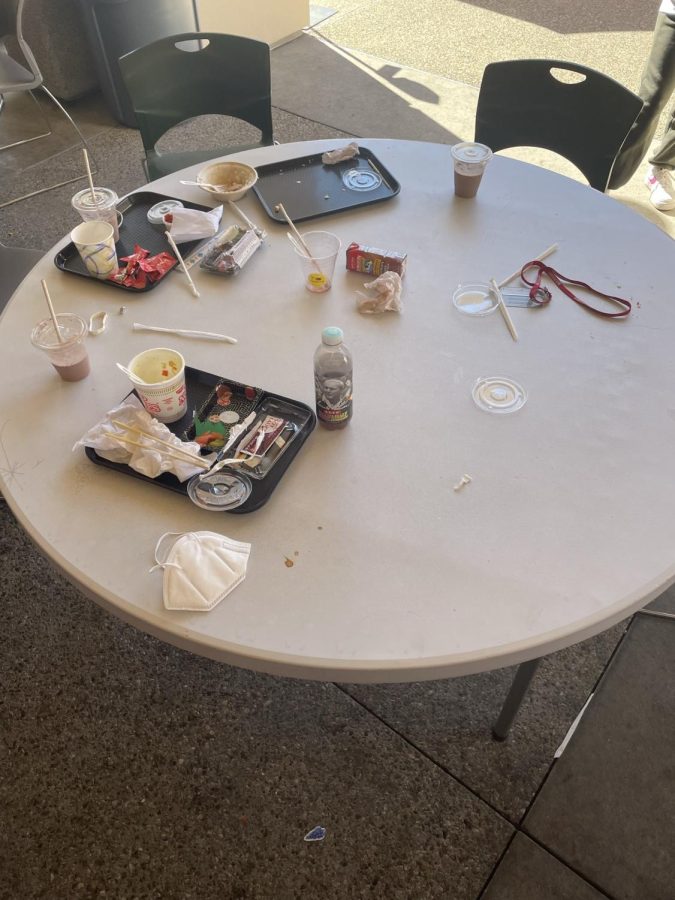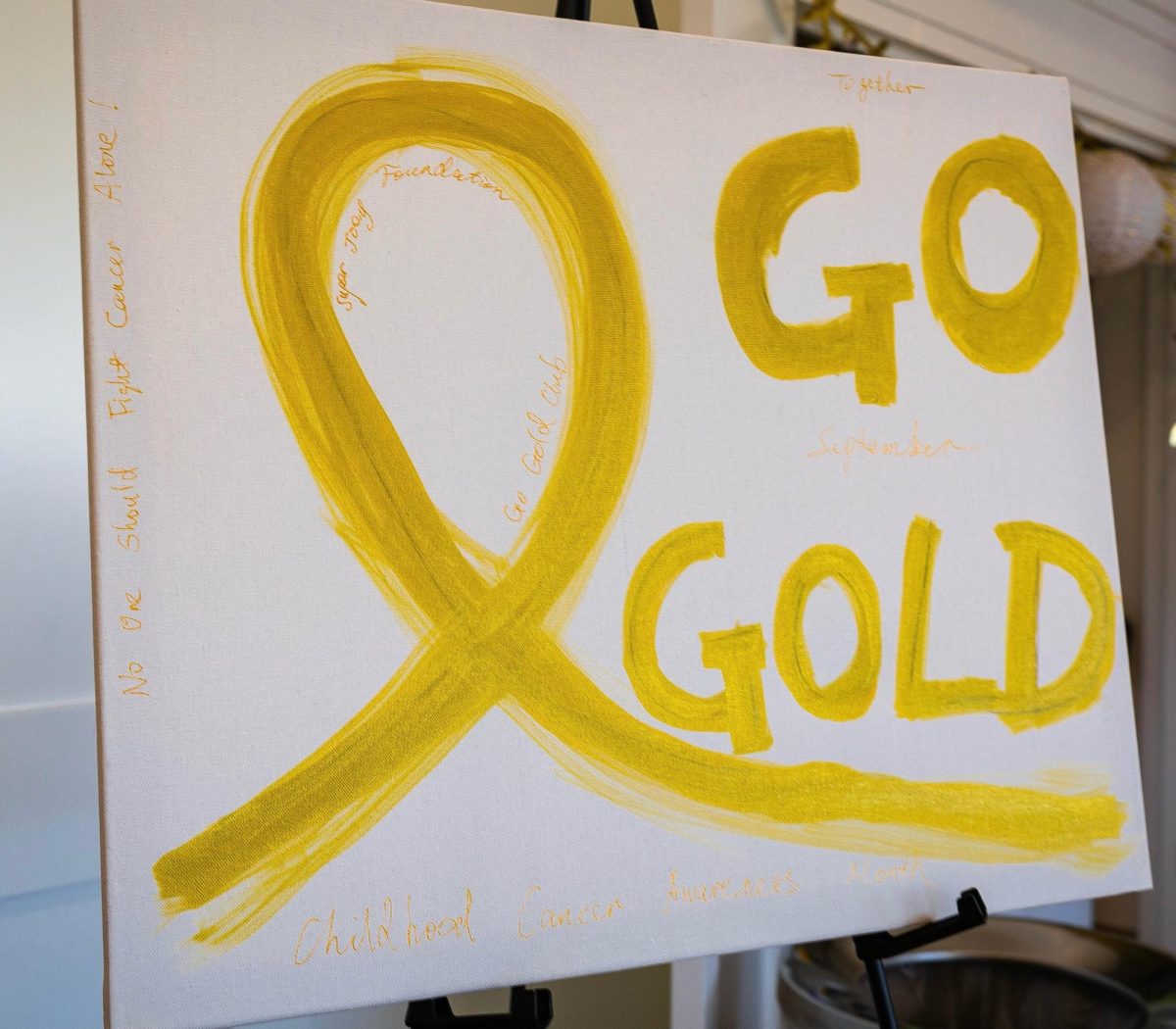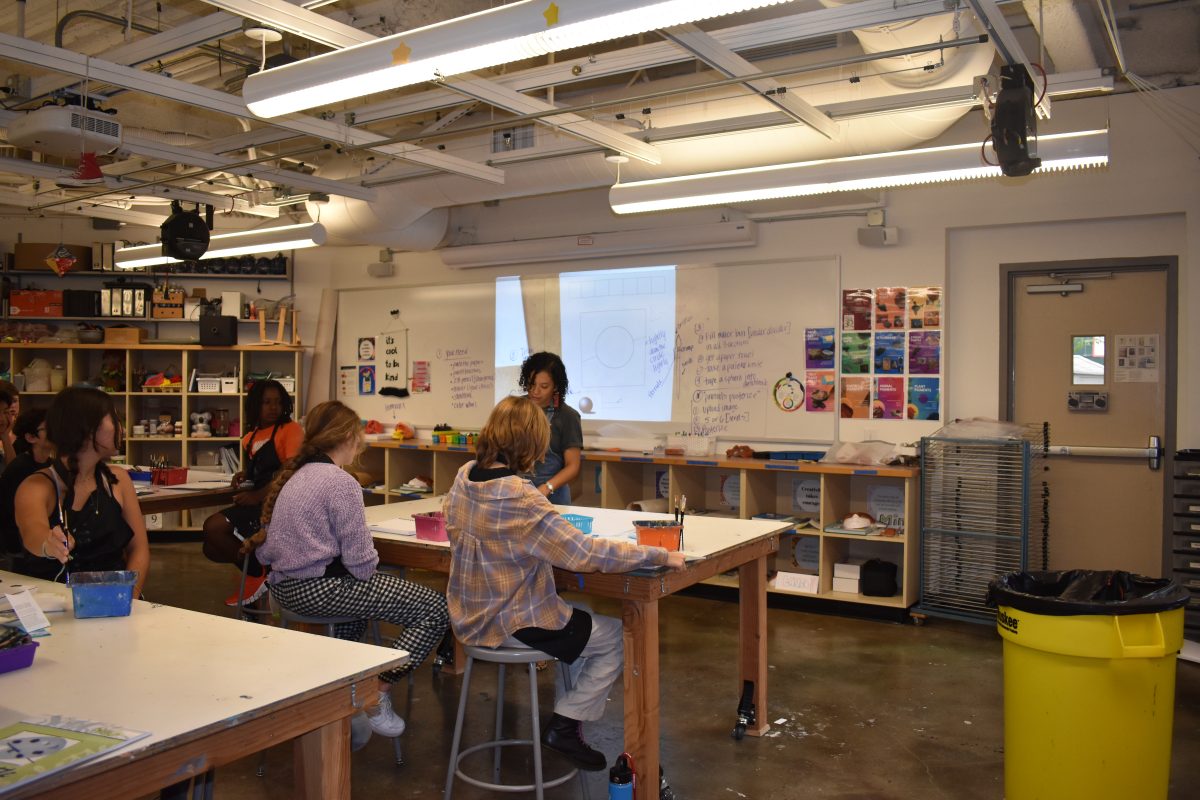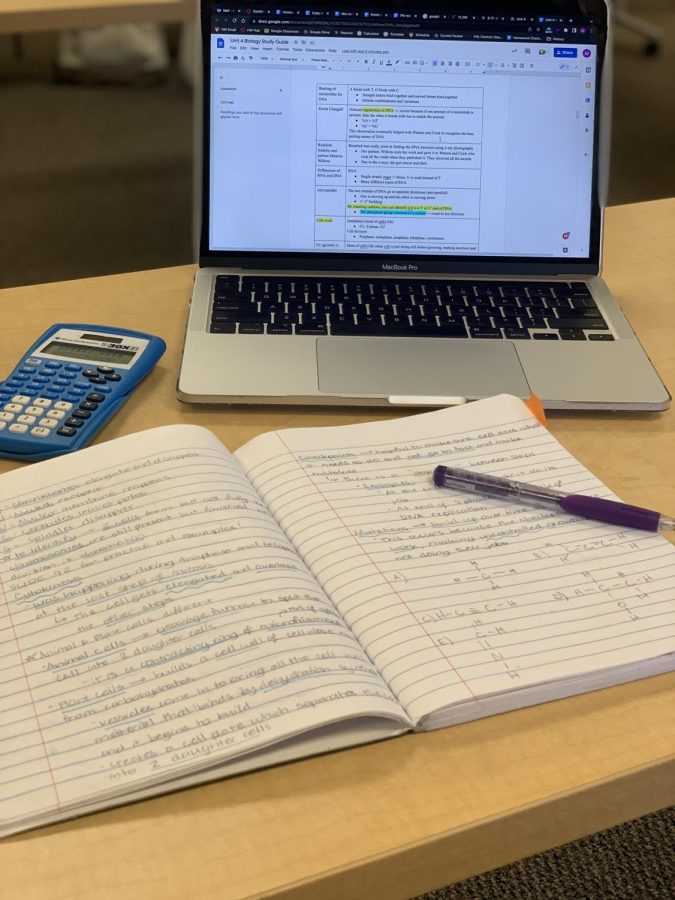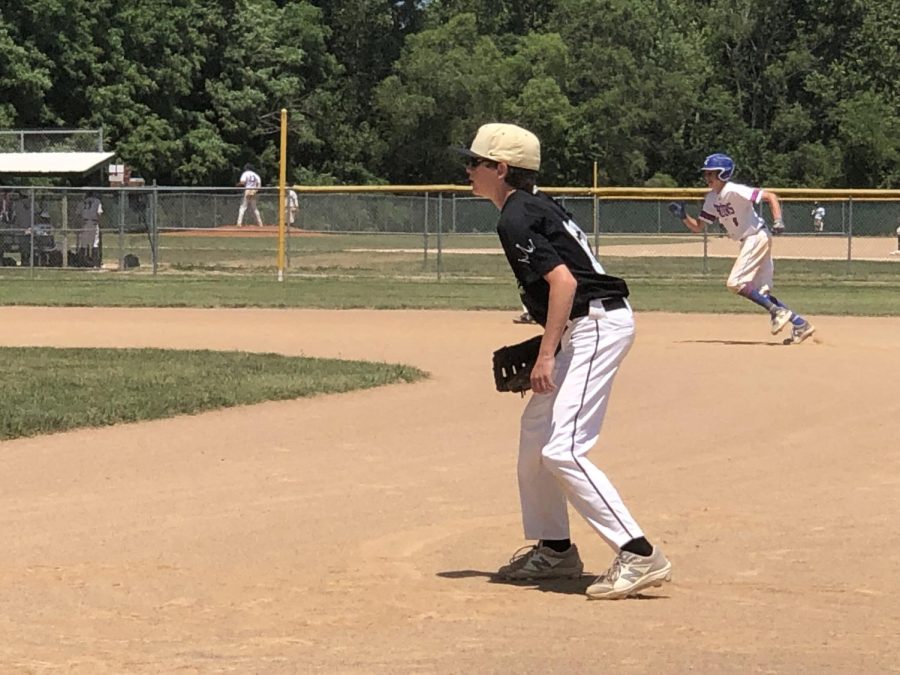
As students make their way back to in-person education after a year of being fully online, the Harvard-Westlake (HW) community has seen itself more crowded than ever. Although there are rare instances of online students, the majority of the student body still participates in activities held on campus. The increase in activity has led to leftovers and trash becoming a serious problem — something the administration is trying to combat.
The majority of trash on campus stems from leftover food and drinks. Bottles, chip bags, bar wraps, and even bowls of food are often left around campus. Although food is not appropriate in certain areas on campus, students are not confined to eating in the Horn Commons. Even though there is no formal policy, the faculty have made it clear there was no eating in certain areas. Popular lunch areas include the front of Seaver Science Center, by Bing Performing Arts, and close to the Sprague Athletic Field. These are usually the areas in which students tend to leave behind a mess.
Many students don’t take responsibility for leaving trash out. I’ve seen people just get up and leave with their trash left on the table. There is no particular efficient method in which people could find out who did unless the witnesses tell a teacher. Trash, thus, is often overlooked. However, with the luxuries of the campus- faculty, administrators, and some students are desperately trying to fix this issue. An account on Instagram called @hw_trash has been created to post pictures of messes left behind by students, and emphasize the importance of cleaning up.
One measure the administration took two months ago was to ban ice cream, boba and cookies in the cafeteria. These refreshments are popular, but also tend to be items usually left behind. The administration hopes that this will encourage students to clean up after themselves.
Though, it hasn’t really worked, since there is still trash everywhere around campus.
“It’s the same thing, people still leave their trash everywhere, just minus ice cream and boba,” Gideon Marley ’25 said. Some students, including Marley, are not particularly satisfied with the trash program, and believe in discipline since it doesn’t seem like the campus is getting any cleaner after the punishment was made.
Other students believe otherwise.
“I believe it’s valid for the administration to punish us,” Mac Galaviz ’25 said. “I mean, how else are we going to punish students? It’s hard to target a specific grade.”
Galaviz said he supports the school’s measures thus far and advocates for a cleaner environment.
Teachers are taking away this because they feel like students should have the responsibility of throwing their own trash away.
“I think the responsibility of throwing one’s trash into the garbage is a reasonable expectation of each member of our community,” ninth grade dean Colby Plath said. “It is a task requiring only a few seconds of one’s time to clean up after themselves, and if everyone did their part, SQUID wouldn’t even be necessary. Most people wouldn’t leave that kind of mess behind at home because either they ‘know better’, their parents are present to remind/guide them, or they care about their home. We want students to take pride in their campus by doing their part to keep it clean.”
What is your message towards those that leave trash hanging on tables? Be the best version of yourself and care for your school like you would care for your own home. Be the thoughtful, polite, considerate person you were on the day you interviewed or you came to tour the campus–that is the bar you set for yourself. It requires a little thought and only a few seconds of your time to clean up after yourself. Probably the same amount of time it takes you to send a message on your phone—after 8th period, of course. Regardless of age, you can be the one who sets the example for others to follow, and a few small actions by all, could even replace the need for SQUID–imagine that! Be a leader. Be the one.
What happened with the cafeteria getting rid of ice cream and boba? Does this have to do with trash? Yes, there is a connection between the amount of trash being left behind by students on the Commons and the lack of ice cream and other treats in the cafeteria.
